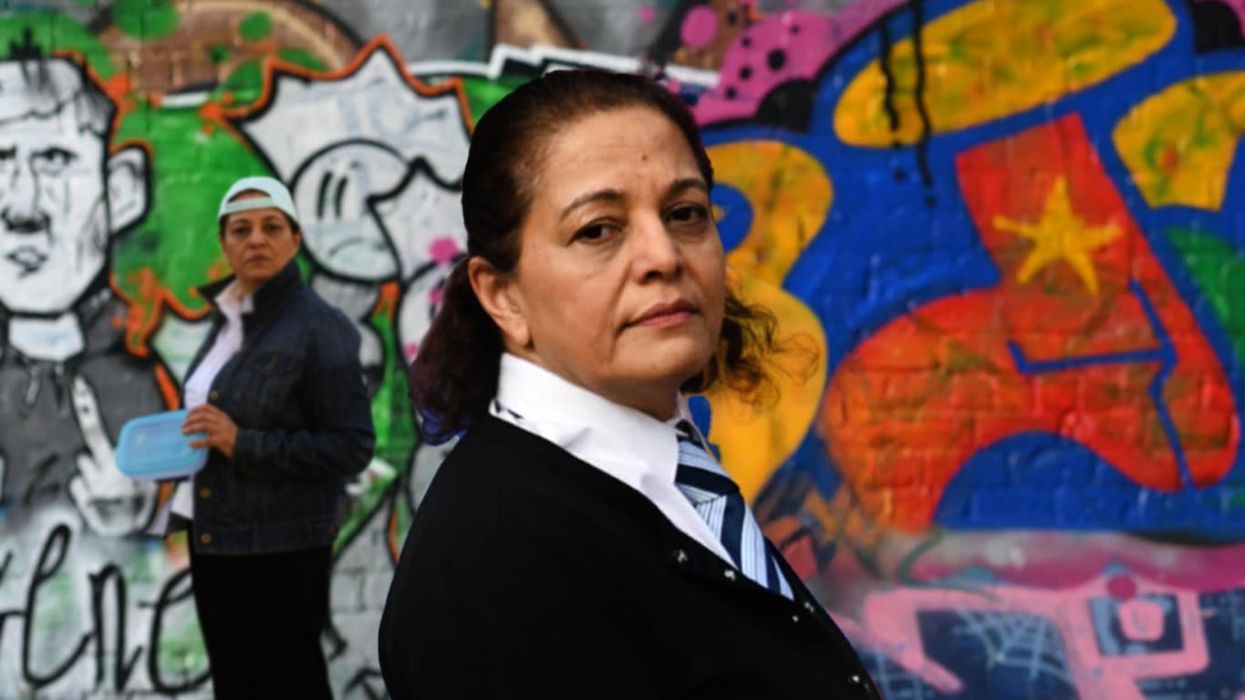Acclaimed Scottish-Pakistani theatre-maker Lubna Kerr returns to the Edinburgh Fringe with Lunchbox – the final instalment of her deeply personal and widely praised ‘BOX’ trilogy, following Tickbox and Chatterbox.
Inspired by her own upbringing as a Pakistani immigrant girl in Glasgow, Lunchbox is a powerful one-woman show that tackles themes of identity, race, bullying and belonging through the eyes of two teenagers growing up on the same street but living vastly different lives. With humour, honesty and heart, Kerr brings multiple characters to life, including her younger self and a troubled classmate, as she explores whether we are shaped by our environment or capable of breaking the cycle.
Ahead of the show’s run at this year’s Edinburgh Fringe, she speaks to Eastern Eye about her creative journey, the inspiration behind the trilogy and why she believes now is the time to share these stories.

How do you reflect on your creative journey?
When I started writing my first play Tickbox, I doubted myself – would anyone come to see it? But it has since been staged all over the UK and is still touring. I have come so far in my creative journey and love being able to find new stories to tell the world.
How much are you looking forward to returning to the Edinburgh Fringe?
I love the Fringe. It is my favourite part of the year.
Tell us about your new show.
Lunchbox is a one-woman show and is the final part of the ‘BOX’ trilogy of my life as a Pakistani immigrant girl growing up in Glasgow. There are eight characters – some familiar and some new.
How does this compare to your other shows Tickbox and Chatterbox?
It is similar but different. It explores the next stage of my school life, but this time through the eyes of the bully, Steven.
How have you felt going on a journey with this unique trilogy?
It was never meant to be a trilogy when I first started writing, but as the stories came out, I realised I had so much to share that I could not do it all in one play.
What is the biggest challenge of doing a solo show?
Keeping well and pacing your energy. There is no understudy, so I need to make sure I get enough rest and can be fresh for my shows every day.

Who are you hoping to reach with this show?
Those who were bullied, those who stood by and did nothing, and those who were the bullies.
Is there a key message you want to convey with this show?
Do not assume you know what is going on in people’s lives behind closed doors. I want audiences to think about who they wrote off in life. Who could they have given a hand to? Whose life did they assume was a waste? Who will they be clapping for? Have they forgiven their bully?
What do you most love about live theatre?
I love performing and sharing unheard or untold stories about the diaspora. We have such a rich culture and heritage, and we need our voices to be heard. Theatre is the vehicle to do this.
How do you feel when you are on stage?
I love being on stage, whether performing a play or doing comedy. I love feeling connected to the audience – having them hold onto my every word and fall into a trance with my characters, helping them forget their worries for an hour.
Why should we all come and watch your new show Lunchbox?
Lunchbox has a universal theme of bullying and discrimination, but it is told by an older south Asian woman. How many of us are out there doing this? I want to inspire anyone of any age to come and share their stories on stage, and let the world know that we are more than just curries and cricket (though I do love both).
www.pleasance.co.uk/event/lunchbox and X & Instagram: @lubnakerr




